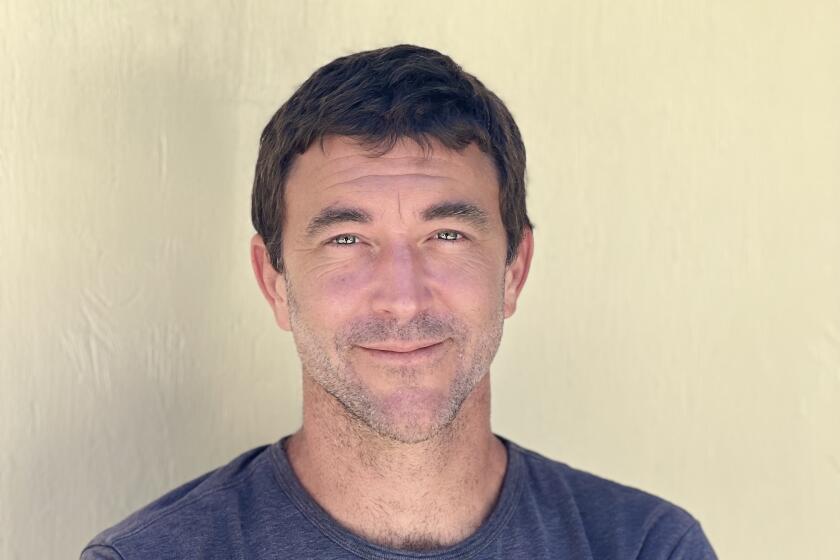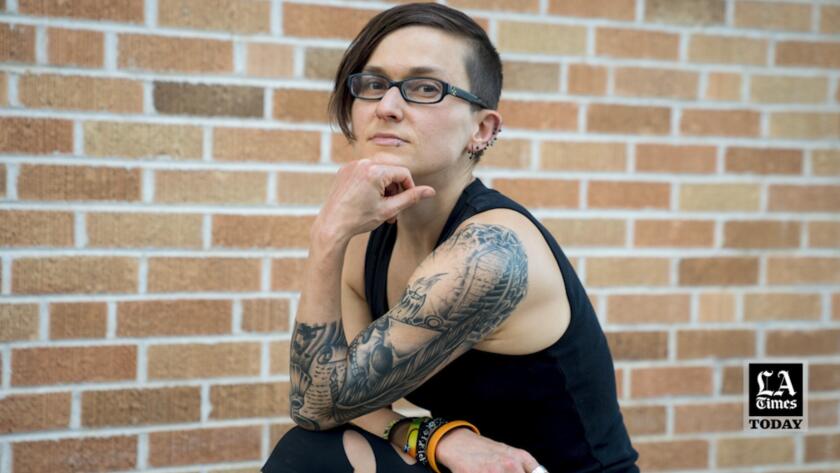Star athlete, addict, prisoner, journalist: A memoirist on her story and her mission
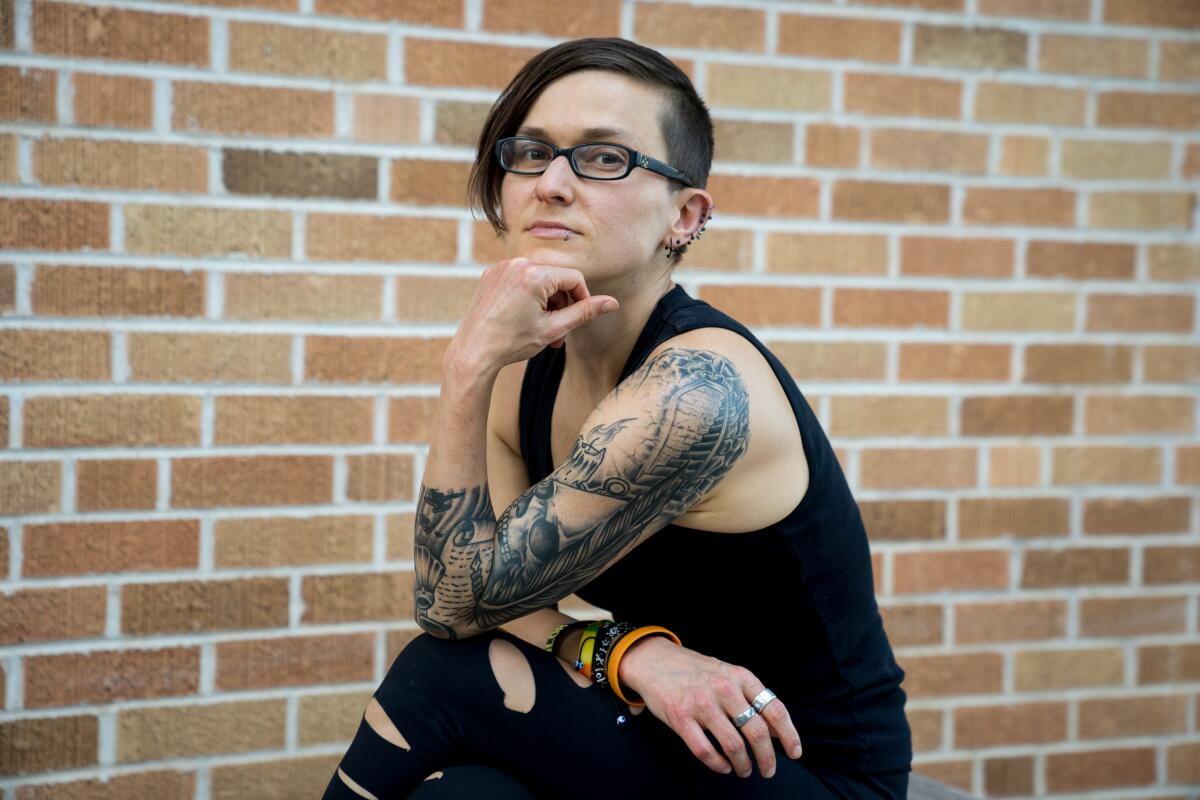
- Share via
On the Shelf
Corrections in Ink: A Memoir
By Keri Blakinger
St. Martin’s: 336 pages, $19
If you buy books linked on our site, The Times may earn a commission from Bookshop.org, whose fees support independent bookstores.
What Keri Blakinger learned in prison changed her life.
Blakinger had been a competitive figure skater as a teen, but battled mental health issues and eating disorders before a frightening descent into drug use, homelessness, suicide attempts, sex work and destructive relationships. But her memoir, “Corrections in Ink,” out in paperback this week, is not your standard “scared straight” fare: She stopped using heroin on her own while locked up, passing up easy opportunities to score drugs behind bars.
No, the first thing Blakinger learned was the lasting harm America’s criminal justice system does to those it incarcerates. In her scorchingly candid memoir, Blakinger writes, “All the futility, the small cruelties, the refusal to see us as fully human — it was not a flaw in the system. It was the system.”
In ‘Children of the State,’ award-winning writer Jeff Hobbs spent months inside juvenile facilities. It was an experience of heartbreak and hope.
The second thing Blakinger realized was that as bad as she had it, she was extremely fortunate. She was from an educated, middle-class background, with almost endlessly supportive parents (despite her addictions, she was close to a degree from Cornell University when she got busted in 2010). And she was white. She saw that everything in that system — from arrest to (mis)treatment in jail and prison to release — was worse for poor people, particularly people of color.

“There’s a dearth of books about women’s prison experiences, and a lot of what people get is from TV and has varying levels of accuracy,” Blakinger said in a recent phone interview from a car while returning from Las Vegas to Los Angeles, where she is now a reporter for the Los Angeles Times.
“This is a book about reentry,” she continued. “My experience shows there’s a possibility for very successful outcomes, but I also hope people see how incredibly lucky I was … and can extrapolate from there why so many people don’t have the same sort of outcomes.”
So while “Corrections” is a deeply personal book, Blakinger also weaves in statistics and other big-picture information. She writes about how prisons were built in rural white areas to boost those economies, which further isolated Black and brown inmates, placing them far from home in the company of local white (and sometimes racist) corrections officers. “They get written up more often,” she writes, “then they’ll go to solitary more often, and it’ll be harder to get out because they won’t be able to make parole.”
In ‘We Were Once a Family,’ Roxanna Asgarian tells the story of the Hart family murders from a crucial point of view: the adopted children’s birth families.
Blakinger shares moving and horrific stories about those with whom she served time, including one woman whose cell was trashed for hours on end by a guard who claimed he was investigating a tip about a rule she had broken; he destroyed her possessions, read her letters and left her sobbing until he finally declared, “April Fools” and sauntered out. (It was March.)
“It’s important to tell my story in a way that doesn’t seem self-pitying, and one way to do that is to tell other people’s stories, which helps readers understand that this is a broader story,” Blakinger said.
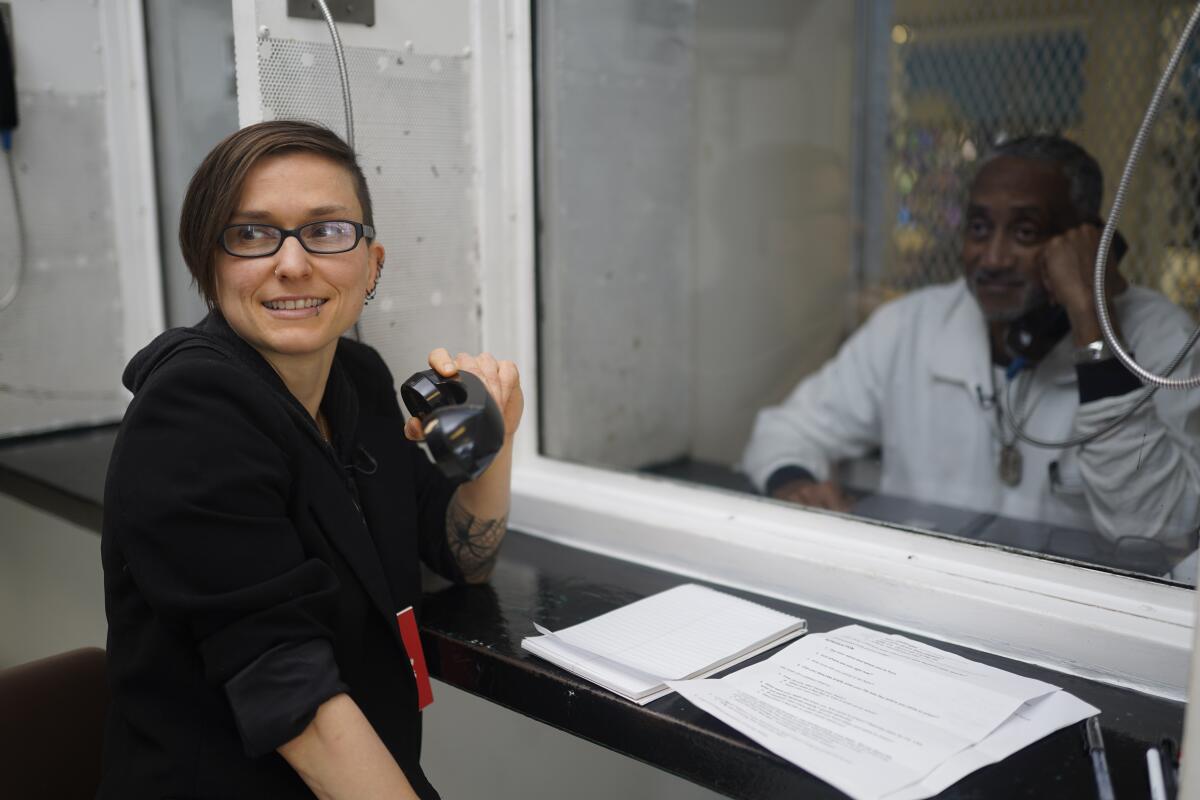
After she was released, Blakinger began telling those stories professionally. As a journalist she committed herself to making a difference for those whose voices were diminished or shut down by the system. A 2015 story she reported on for the New York Daily News helped lead to the arrest and conviction of a Rikers Island corrections officer for raping a female inmate. Her criminal justice reporting for the Houston Chronicle helped restore basic human dignity to inmates — for instance, the state finally provided dentures to toothless inmates after her stories on the topic. She won a National Magazine Award for a Washington Post Magazine story on California prison reforms and then joined the Marshall Project. (She came to The Times in January to cover the Los Angeles County Sheriff’s Department.)
Despite her success, Blakinger said it took her a long time to shake off the trauma of incarceration: “Even though I didn’t do a long time, it really stays with you. You only come back from prison bit by bit. Even now there are days where I’m surprised when people in positions of power treat me like a real person and not a number.”
The suit alleges several deputies were repeatedly pressured to quit or leave. Some said they were assaulted by alleged members of the Banditos gang.
While she had addressed her saga in essays, writing a memoir was a very different experience. “It’s a very weird research project,” she said. “You spend time just screwing around on Facebook, going down rabbit holes thinking, ‘I forgot about that person’ and then you remember something you did with them. Sitting and staring at the walls and remembering — and calling that research — can feel supremely unproductive.”
Her earlier work had prepared her for the research and writing, but promoting the book took a new toll. “I was not prepared for how difficult it was discussing these things at length, day after day for weeks, getting asked some of the same questions,” she said. “It’s really weird listening to people read aloud some of the darkest parts of my own life back at me. I’ve learned there are only so many questions in a row about sex work that I can answer. It would sometimes throw me off emotionally.”
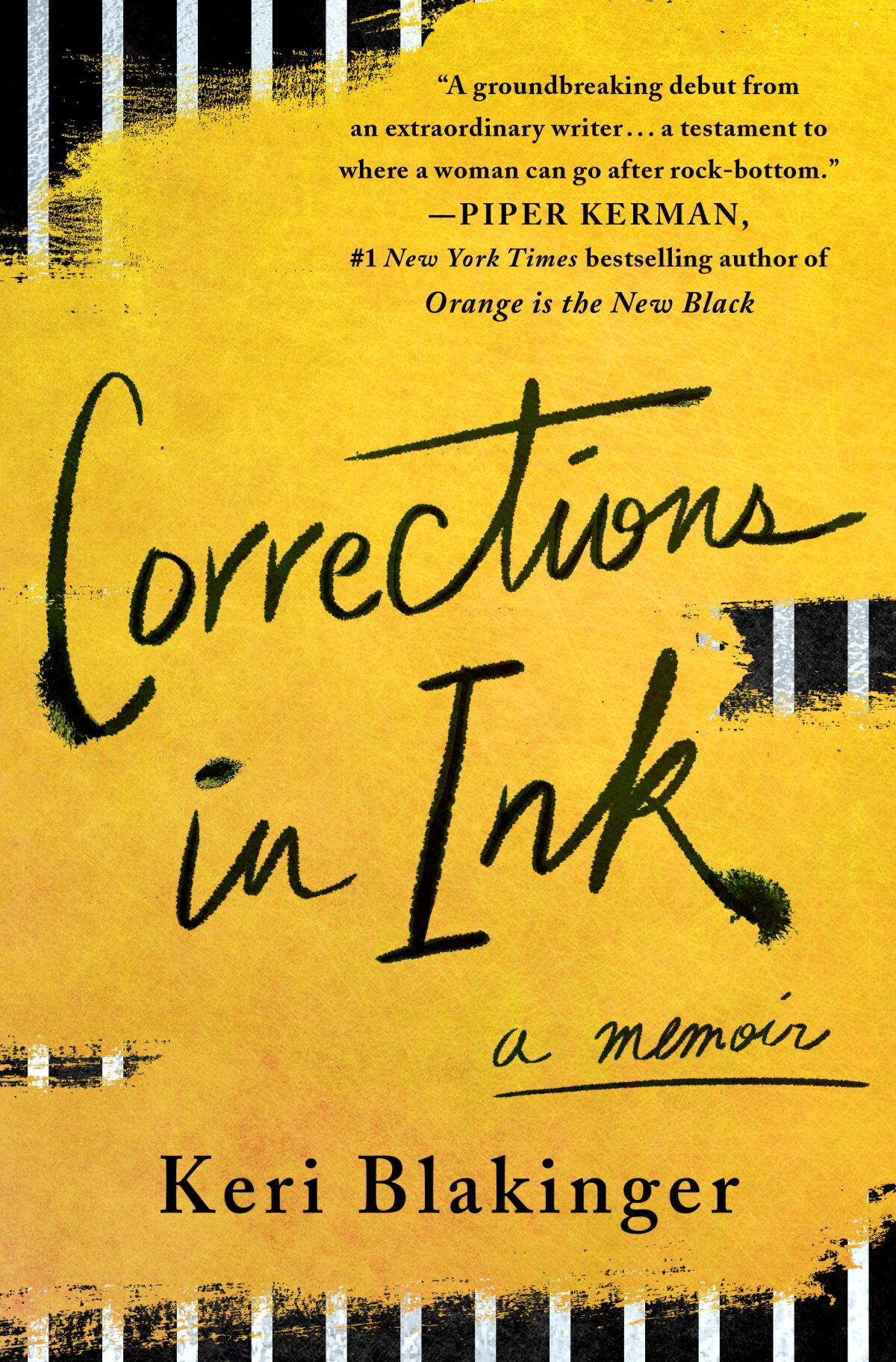
She did have one encounter that particularly pleased her, however. Blakinger went back to Ithaca, N.Y., the literal scene of her crime, for a book event; there, someone accidentally rear-ended her rental car. The other driver wanted to call the police. “I thought, of all the places to call the police, why in Ithaca,” Blakinger said. She was relieved when she didn’t immediately recognize the officer who arrived. “I gave her my ID, and she looked up and said, ‘Congratulations on your book.’ That was amazing. It was such a wild full-circle moment for me.”
But what Blakinger cherishes most are the responses from readers in prison. “I get letters about how I’ve inspired them or now they’ve started writing themselves,” she said. “It makes me so happy.”
Amanda Gorman’s inaugural poem ‘The Hill We Climb’ was added to the book bans taking over Florida elementary schools
Those readers were not, initially at least, from Florida, which banned the book in its prison system. “I was not surprised because Florida has the largest banned book list in the country in terms of prisons,” Blakinger said. But she also wasn’t particularly surprised when an official reversed the decision after some bad publicity. “At some point it went high enough up the ladder for somebody would realize it was not a good look and they didn’t want to deal with a possible lawsuit.”
Still, the issue remains unresolved. Blakinger had set aside copies for Florida’s inmates, and officials have still not answered her queries about where to send them. And many prison systems don’t allow any hardcover books, so Blakinger is curious whether the paperback version prompts a new round of bans. “I’ll be interested to see what California prisons do,” she said, ever the reporter.
- Share via
Watch L.A. Times Today at 7 p.m. on Spectrum News 1 on Channel 1 or live stream on the Spectrum News App. Palos Verdes Peninsula and Orange County viewers can watch on Cox Systems on channel 99.
More to Read
Sign up for our Book Club newsletter
Get the latest news, events and more from the Los Angeles Times Book Club, and help us get L.A. reading and talking.
You may occasionally receive promotional content from the Los Angeles Times.
